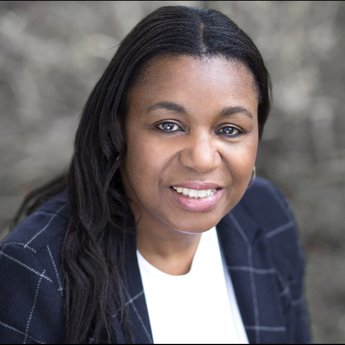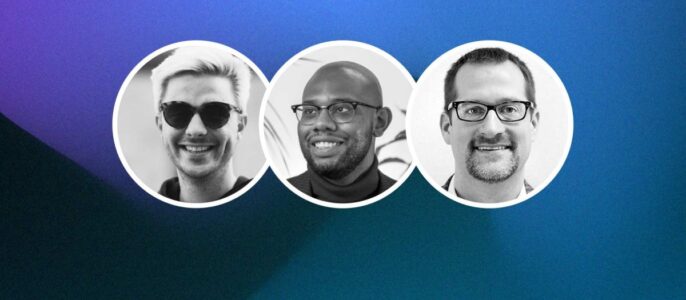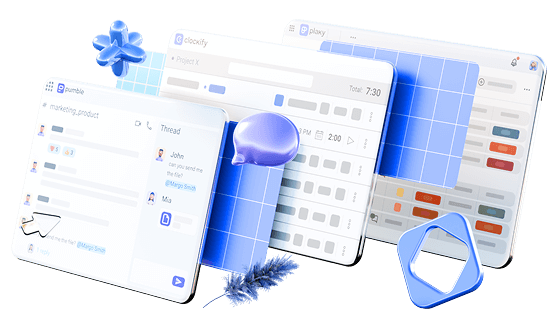Is the new generation’s ability to have bold conversations enough to achieve a more diverse, equitable, and inclusive culture? What role in DEI do leaders have and where to even start with building an inclusive company culture?
In episode 3 of Future of Work Talks, we’ve discussed the state of DEI and our role in it with:
- Rhonda Moret, CEO and Founder of Elevated Diversity,
- Alexis Zahner, Co-Director and Founder of Human Leaders and podcast host, and
- Chikere Igbokwe, Founder of Allyship and INCLUCIVE.
Our panelists shared their hopes and fears about DEI in the workplace. They also highlighted the part leaders and everyone else in the organization have in achieving a more diverse, equitable, and inclusive culture.
If you would like to take active steps in fostering DEI, check out the key panel takeaways and watch the full episode here:
A safe space fosters a DEI culture
According to panelists, the most important aspect of building a more diverse, equitable, and inclusive company culture is having all voices on the table. Furthermore, Igbokwe highlighted another vital aspect that enables actual change to happen — making all employees feel safe.
Moret noticed that employees who are part of the dominant culture shut down when they hear about diversity, believing it doesn’t involve them. But, for DEI to be imprinted in the company culture, every employee has to feel they have a part to play.
To make this happen, Moret’s company organizes programming built around storytelling and active listening, believing that “if we’re able to tell our stories and feel comfortable telling our stories and feel like this is a safe space then we’re going to start being able to make some true progress.”
Another reason a part of the company could shut down and refrain from being part of the larger conversations is due to the existence of unconscious bias.
As our panelists explain, research shows bias is based on how our brain operates. Thus, instead of removing ourselves from conversations completely, we should take active steps to identify unconscious biases that exist within us. Zahner notes that “we can’t check what we can’t see, so we need diverse perspectives to be able to check that in ourselves.”
So, to achieve a diverse, equitable, and inclusive culture, organizations have to create a safe, non-judgmental environment. In this environment, everybody understands they have a role to play. They aren’t shying away from a conversation and are open to educating themselves and becoming more accountable.
Leaders should look from within first
As our panelists highlight, to be a good DEI leader, you have to be in it for the long haul. You also need to develop a deep form of self-awareness and understanding of the power you have in fostering an inclusive culture.
That is why Zahner starts her leadership development program with self-leadership. This part of the program relies on increasing self-awareness and understanding our power because “we can — through our relationships, through the way that we work, through the conversations we have — influence change and those around us.”
Once leaders get to know themselves, they can lead others. Zahner ends her program with radical responsibility which means “taking continuous ownership of how we show up in the world.”
Incorporating DEI into the culture is not a one-and-done conversation. Zahner highlights that “it’s really about having the perseverance and the discipline to continually rethink and evolve how we lead so that we can meet the needs of our team members.”
A hopeful but uncertain future for DEI
Igbokwe emphasizes that new generations are having bolder conversations and that DEI has become a priority. She also notes that Gen Z values a sense of belonging to an organization that shares the same values:

“There’s no point in doing all these amazing things if you don’t feel like you belong with an organization because you’re not going to stay.”
However, Zahner warns that “racism and discrimination are systematically baked into the way that we work and the way that our communities operate”. She adds that “all the good intentions in the world actually cannot translate to change if we’re not willing to unpack the systems that keep us stuck where we are.”
Thus, as Zahner explains, change is only possible with hard work and accountability:

“I’m really hopeful that in 2024 and beyond we’ll continue to develop workplaces where DEI is better baked into our systems because some of the organizations are finally ready to unpack sort of the patriarchal systems that have got us to this point.”
For more thoughts about the future of work, subscribe to our channel and check out the Future of Work Talks playlist.
How we reviewed this post: Our writers & editors monitor the posts and update them when new information becomes available, to keep them fresh and relevant.




